Homemade Fishing Bait For Beginners – Why You Should Carpe Diem And Make Your Own Bait
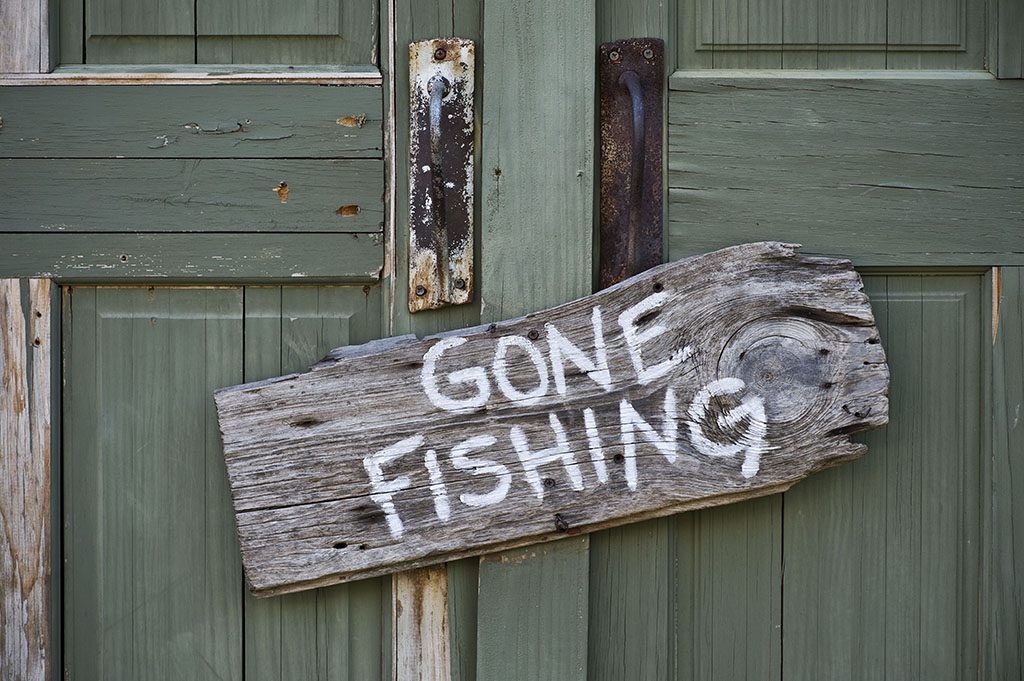
Humans have been fishing throughout history, in a variety of ways, using anything from spears and harpoons to rods and nets, as fish (and dried fish) were a staple part of our diet. Fast forward 40,000 years and angling is now one of the top five hobbies in the UK. It’s a great hobby that gets you out in nature in a stress-free environment and we’re spoiled here in the UK, as there are plenty of beautiful places to go fishing.
If you’re just starting out, then you’ll already be aware of how expensive it can be; from rods and reels, poles, lines nets, floats and hooks, it can all feel a bit daunting. But one way you can save a bit of money is by making your own bait, using just a few household staples.
What Is Fishing Bait?
Fishing bait is basically anything you use to attract and catch a fish. A common form of bait is boilies, which is a mixture of all sorts of ingredients; usually a form of protein, grains, powders etc mixed together with liquid – often water, sometimes eggs – to make a paste that is then formed into balls from 8mm in size to around 21mm, depending on the size of the hook you’re going to use.
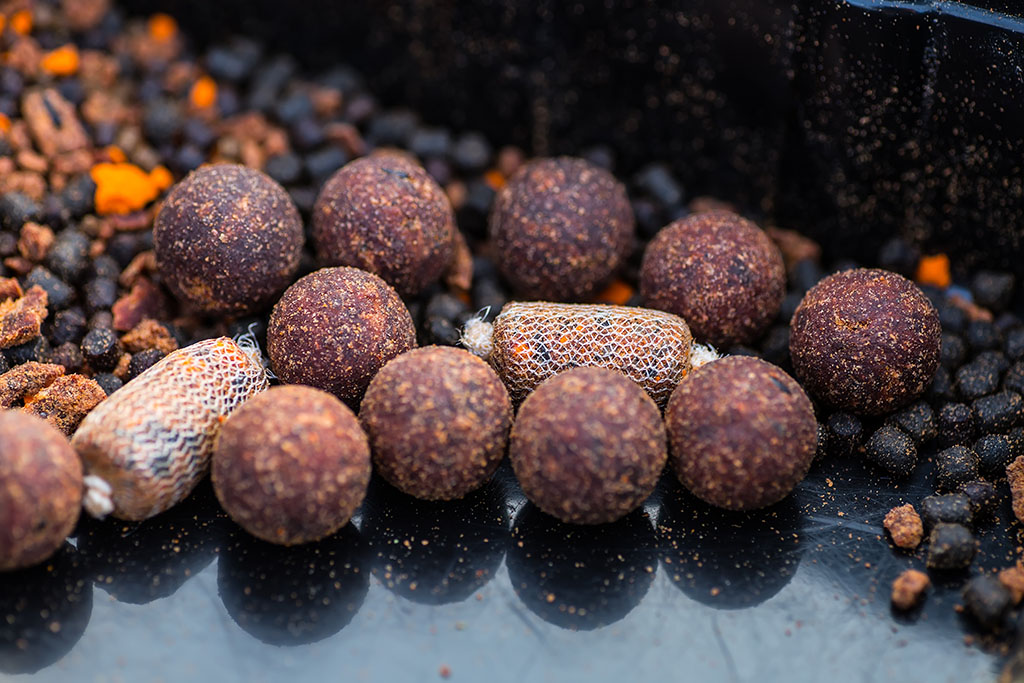
Why Homemade Fish Bait?
Making your own bait can be really rewarding; it’s cheap and fast and it’s a really rewarding feeling when you catch a fish using something you’ve made yourself, it adds another level of satisfaction to your catch. Using homemade fishing bait means you can experiment and tweak it to find what works best, depending on the type of fish you’re hoping to catch, it can also be a good way of using up waste food.
Before You Start
Check whether there are any specific rules regarding types of bait where you’re going to be fishing, sometimes there are regulations about what you can use, to protect the fish and the waterways.
Remember to write down the ingredients you use, and the measurements, and make notes on how successful they were so you have a record of what works.
Recipes
You can’t go wrong with maggots, sweetcorn and luncheon meat, but we’ve found a few basic recipes for you to try:
Basic Bait Recipe:
Can of sweetcorn
Vanilla extract
Drain the sweetcorn, leaving a bit of water in the bottom of the can, then add some vanilla extract. Cover the can and shake well to coat the corn.
(Carp love sweetcorn, they’re attracted to the colour, and the vanilla is easily released into the surrounding water).
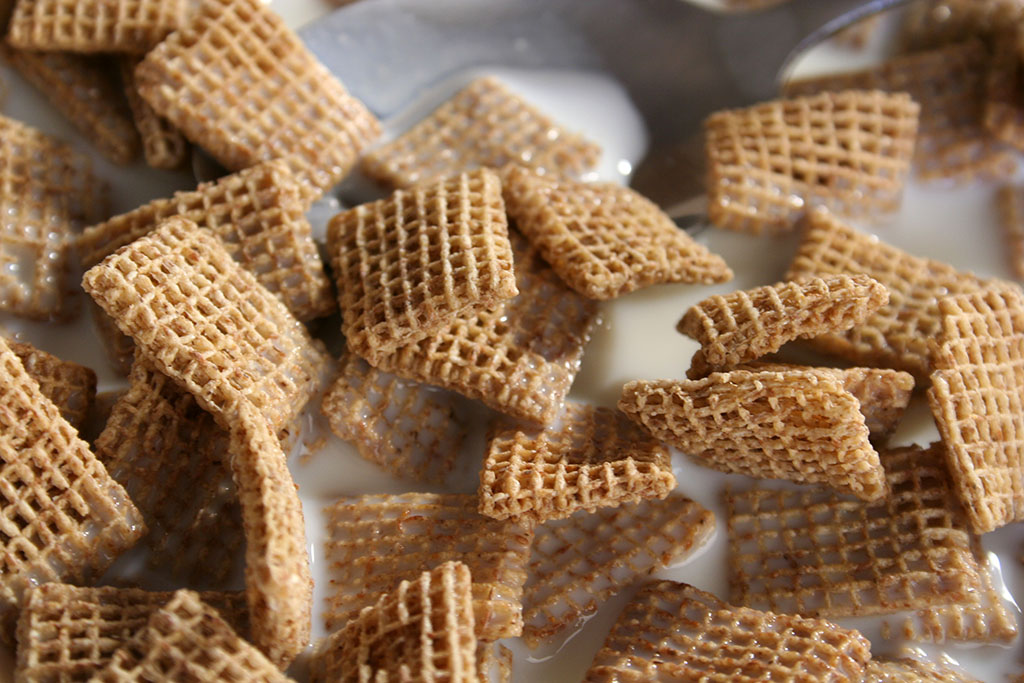
Wheaties
Wheaties cereal (Shreddies or similar)
125g of flour
Garlic salt
Water
Crumble the Wheaties and mix with the rest of the dry ingredients in a bowl, you’re aiming for a dough-like consistency. Form the mixture into boilie-like balls.
(This is similar to commercial bait which often contains bird food; grains and seed. The garlic adds flavour, and the flour binds it together).
Chicken Liver Bait
Fresh chicken liver
Anise extract
1lb of instant oats
Blend the liver and anise in a blender to make a paste, mix with the oats and mould into boilie-like balls.
(This one is quite messy to prepare but very effective).
Peanut Butter Bait
2 slices of white bread
60g of instant oats
30g of flour
125g of peanut butter
Mix the flour and oats in a bowl, shred the bread with your hands and mix it in and add the peanut butter. Form into tiny balls.
(Once these are in the water the flavour will diffuse really quickly).
Strawberry Bait
Water
3oz strawberry jelly
250g of instant oats
Put everything in a sealed Ziplock bag and mix it all together. Lay the bag flat and get rid of any lumps then leave it for 3 days until the jelly and water have soaked into the oats and the mixture has hardened.
(You could also add some sweetcorn to this for more colour).
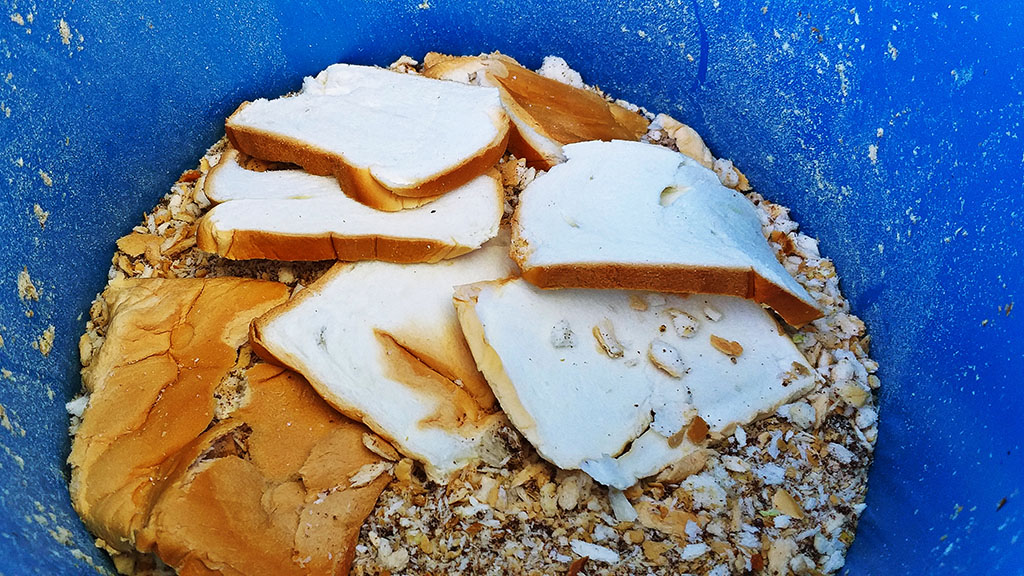
Other Food You Can Use
Have you got some slightly out-of-date cereal at the back of your cupboard? Leftover noodles from a stir fry? Rather than throwing it out, remember your fishy friends and put it to good use!
Leftover fish – perch and other freshwater fish love the smell and texture of prawns and shrimp.
Stale bread – you could use chunks of it as bait or mix breadcrumbs into other bait.
Any breakfast cereal – particularly puffed wheat cereal that’s coated in sugar, it makes a good floating bait.
Leftover dough balls – even fish love a garlic dough ball.
Nuts – while they might not be as bright or as full of flavour as sweetcorn, nuts such as peanuts or Brazil nuts are a firm favourite with carp, particularly if they’re soaked in something sweet beforehand.
Biscuits – it’s always good to have a flask of tea and a biscuit when you’re out fishing but save some for the fish as they love them too, especially digestives. You can also crumble them up and mix them in with maggots or chicken liver.
Cheese – who doesn’t love a bit of cheese with their biscuits? Chub, carp, trout and catfish are definite cheese lovers. Use chunks of cheddar as bait, or mix grated cheese into other bait, the smellier the better.
Egg noodles – fish are lured in by their worm-like texture.
Hot dog sausages – use them chopped up on their own or mixed with other bait. Just hold the onions and mustard!
Bacon – its high-fat content makes it popular with both fresh and saltwater fish.
Berries – keen to get their 5-a-day in, fish often eat blackberries, raspberries and strawberries.
Dried fruit – raisins work particularly well.
Marshmallows – these dissolve pretty quickly so take plenty.
Doughnuts – even though there are never any doughnuts left over here at The Insurance Emporium, the bread-like texture, and added sweetness, mean that a stale doughnut is great for attracting fish.
Here are a few more unusual fish baits you might not have thought of!
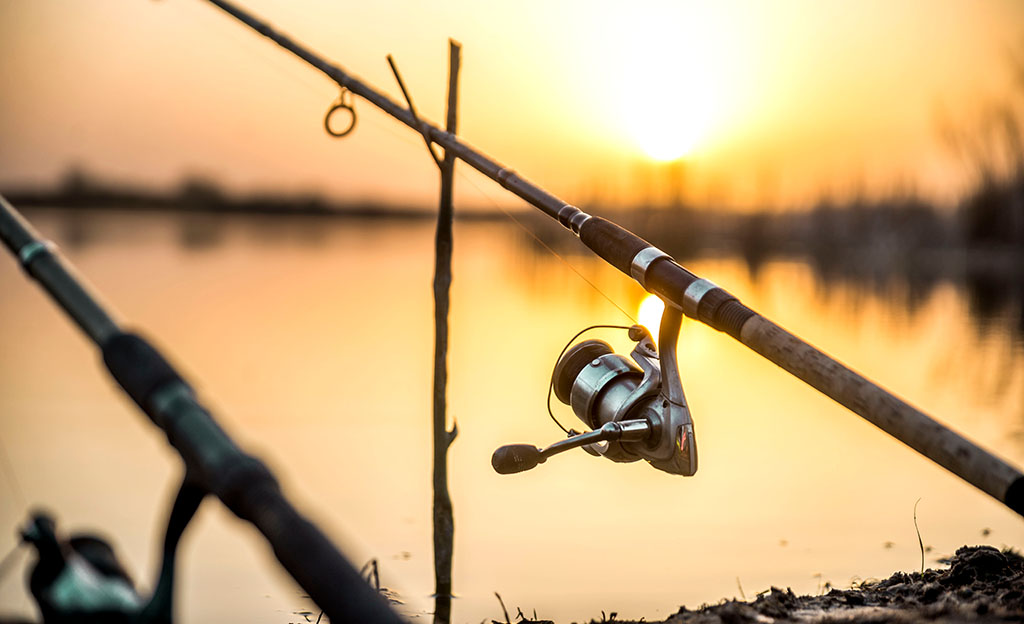
Different baits will appeal to different fish, but part of the fun of fishing is experimenting, and working out which bait works best. Once you learn how to identify common fish breeds in the UK, you’ll soon get the hang of what works for which fish.
Even if you’re new to fishing you know how easy it is to get hooked, and how important it is to look after your equipment. One way to do this is to check out fishing insurance and we’ve put together a small guide to the reasons why insurance can help if things don’t go to plan. You can choose from 3 policy types and tweak them with a range of Optional Benefits, depending on the type of cover you need, leaving you free to head off for a reel-y good time!
All content provided on this blog is for informational purposes only. We make no representations as to the accuracy or completeness of any information on this site or found by following any link on this site. We will not be liable for any errors or omissions in this information nor for the availability of this information. We will not be liable for any loss, injury, or damage arising from the display or use of this information. This policy is subject to change at any time.
We offer a variety of cover levels, so please check the policy cover suits your needs before purchasing. For your protection, please ensure you read the Insurance Product Information Document (IPID) and policy wording, for information on policy exclusions and limitations.



